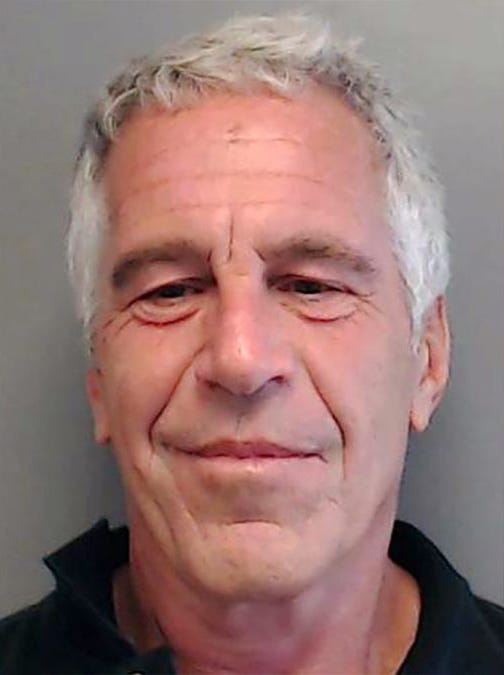Who Was in Jeffrey Epstein’s Black Book? A July 2025 Look Back at a Social Ledger of Power
A fresh examination of the names inside Epstein’s infamous contact book and their roles in his web of connections, six years after his death.

A Record of Ambition and Ambiguity
In July 2025, more than half a decade after financier Jeffrey Epstein’s death, his “little black book” still invites scrutiny as a record of social ambition and questionable ties. The ledger, first published with redactions in 2015, cataloged an array of elite names — some denying any relationship, others more closely linked — according to a report by The New York Times.
The Book That Mapped a Secretive Social Circle
Epstein’s black book, described in a 2009 FBI affidavit as “a small bound book,” became public when his former house manager, Alfredo Rodriguez, attempted to sell it before journalist Nick Bryant published its contents. The document included hundreds of names spanning politics, business, media, and culture, revealing Epstein’s proximity to power as well as aspirational contacts added by his staff.
The book’s presence in the federal investigation after Epstein’s 2019 arrest raised questions about whether its entries reflected complicity or merely social or professional contact, as many named insisted they did not know him. Inclusion in the book alone does not constitute evidence of illegal or unethical behavior.
Power Players in Politics Push Back
Prominent political figures dotted the book’s pages, several of whom denied any meaningful association. Among them:
Prince Andrew, Duke of York, whose ties to Epstein have been widely reported.
Ehud Barak, former Israeli Prime Minister and defense minister.
Bill Clinton, 42nd U.S. President.
President Donald Trump, then a businessman and television personality, now serving his second term as President of the United States.
Henry Kissinger, former Secretary of State and Nobel laureate.
David Koch, late industrialist and political donor.
Ted Kennedy, long-serving U.S. Senator.
John Kerry, former Secretary of State and Democratic presidential nominee.
Many claimed they never met Epstein or attended any of his gatherings, casting doubt on the circumstances of their inclusion.
Business Moguls Caught in the Spotlight
Business and finance were well-represented in the book, with entries such as:
Les Wexner, retail magnate behind Victoria’s Secret and Bath & Body Works, reportedly Epstein’s biggest known client.
Alan Dershowitz, Harvard Law professor and outspoken attorney.
Rupert Murdoch, media executive and owner of News Corp.
Mort Zuckerman, real estate and media billionaire.
Richard Branson, British founder of Virgin Group.
Evelyn and Edouard de Rothschild, heirs to the Rothschild banking dynasty.
Ron Burkle, billionaire investor and philanthropist.
Several of these individuals stated they were unaware of their listing and denied personal ties.
Celebrities, Journalists, and the Shadows of Fame
Artists, actors, and journalists appeared in the book, underscoring the breadth of Epstein’s connections:
Mick Jagger, lead singer of The Rolling Stones.
Courtney Love, musician and actress.
Alec Baldwin, actor and comedian.
Ralph Fiennes, British stage and screen actor.
Mike Bloomberg, businessman and former New York City mayor.
Ivana Trump, businesswoman and first wife of Donald Trump.
Anderson Cooper, CNN anchor and journalist.
Les Moonves, former CBS executive.
Charlie Rose, former PBS interviewer.
Woody Allen, filmmaker.
Liz Hurley, actress and model.
Phil Collins, musician and songwriter.
Many attributed their presence to introductions through Ghislaine Maxwell or social overlap at public events.
Inner Circle and a Legacy of Scandal
Some names in the black book were closer to Epstein’s inner circle or symbolized his access to elite society:
Ghislaine Maxwell, later convicted for sex trafficking crimes tied to Epstein.
Jean-Luc Brunel, French modeling scout accused of abuse.
Naomi Campbell, supermodel and philanthropist.
Tom Ford, designer and filmmaker.
Marvin Minsky, pioneering cognitive scientist from MIT.
These names exemplify how the book blurred the line between meaningful ties and social aspirations. As historian Hallie Rubenhold noted, “In theory there is nothing wrong with a little black book. It’s just how you use it and how you treat the people who are inside.”
Why Epstein’s Black Book Still Matters in 2025
Six years after Epstein’s death, his black book remains a stark reminder of how association — whether intentional or incidental — can draw individuals into public scrutiny. It highlights how elite networks, shrouded in secrecy and exploitation, can corrode reputations and erode public trust.
In 2025, the controversy over Epstein has only intensified. This year, the Department of Justice and FBI reaffirmed that he died by suicide and left no client list. Yet those findings widened the rift between President Donald Trump’s administration and his political base. Right-wing figures and MAGA influencers accused the administration of a cover-up, while public interest in Epstein’s connections remains high, surpassing even major policy debates in media coverage and search trends.
What began as a record of names has evolved into a political flashpoint. As President Trump navigates his second term, Epstein’s black book continues to test the administration’s credibility and the public’s faith in transparency — a cautionary tale of power, proximity, and accountability still unfolding in the national spotlight.




I'd guess Epstein's book is much like society in general.
Everyone wants to be in it on their own terms, but no one ever is.
Stephen Hawking, JP Morgan Chase Jamie Dimon and magician David Blaine